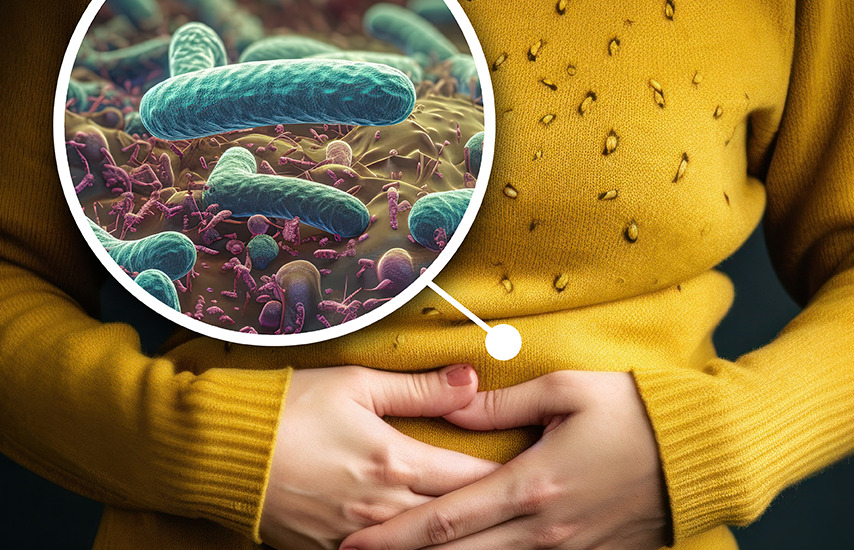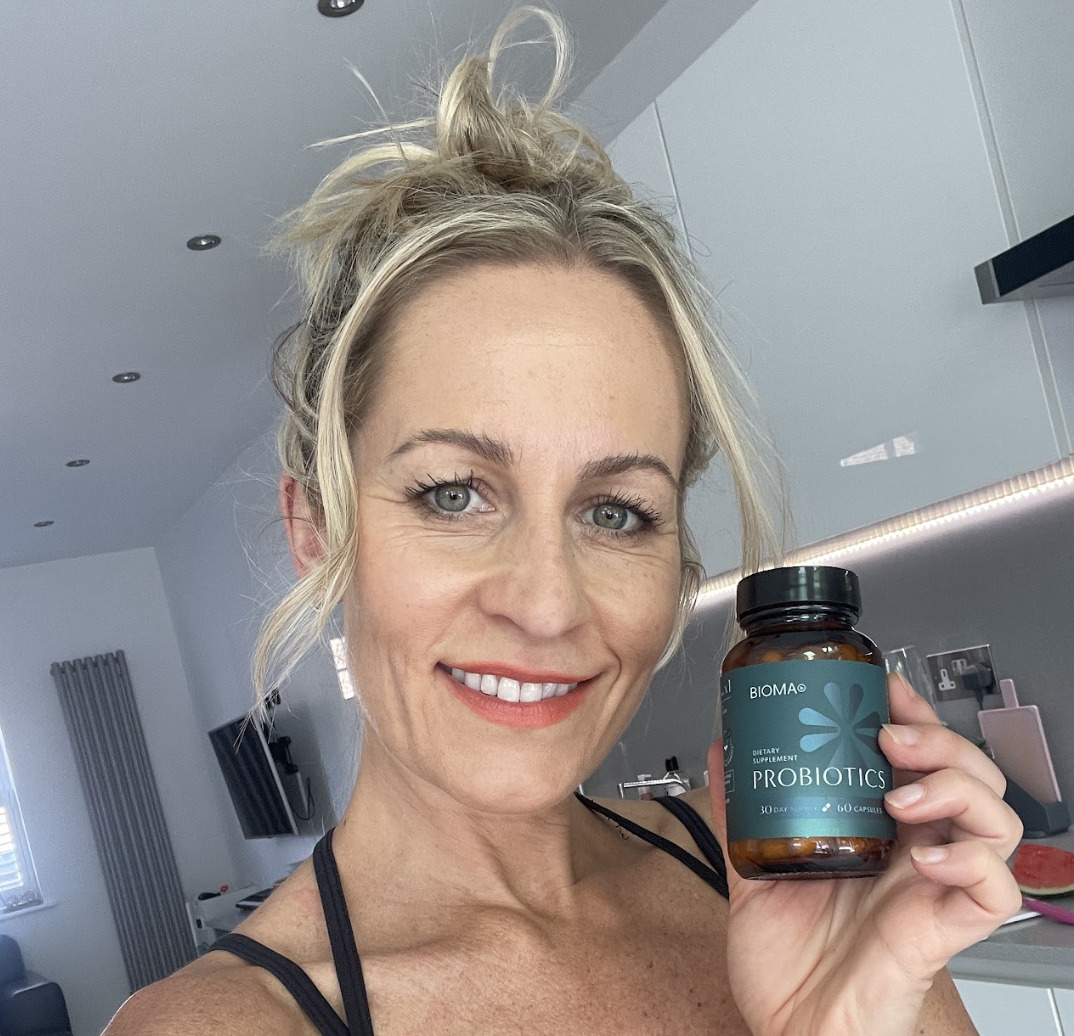What Are Prebiotics?

When it comes to nurturing our wellness from the inside out, prebiotics play a pivotal role that often goes unnoticed. These dietary dynamos are the fuel that powers our gut’s beneficial bacteria, setting the stage for a digestive system that operates at its best.
Delving into the world of prebiotics and gut health, we uncover how these fibers are not only pivotal for digestion but also for bolstering our body’s natural defenses. With the health community increasingly recognizing the benefits of prebiotics, it’s crucial to understand what they are, how they differ from probiotics, and the vital role they play in our diet. This exploration delves deeper into what are prebiotics and how you can harness the power of prebiotic effects.
What Are Prebiotics?
Prebiotic dietary fiber is like food for the good bacteria in our tummies that keep us healthy. These specialized fibers are non-digestible, otherwise known as resistant starch, which allows them to bypass the upper part of the gastrointestinal tract and reach the colon, where they promote the growth of healthy bacteria in the colon cells. Prebiotics are foundational to a thriving gut microbiota, distinguishing their role from the live cultures known as probiotics.
How are they different from other digestive enzyme groups? Prebiotics are the food that helps maintain and stimulate the growth of good bacteria, while probiotics are the actual bacteria that need to be fed to thrive. Together, they work synergistically to promote a healthy gut microbiome, but each plays a distinct role within this partnership.
Consuming prebiotics can lead to many health benefits, including enhanced digestion, stronger immune system, and potentially even improved mental health. Understanding how to incorporate these powerful fibers into your diet is the first step toward optimizing your gut health and capitalizing on the full spectrum of their health benefits.
Prebiotics and Gut Health
Prebiotics are like superfoods for your gut’s good bacteria. These fibers contain resistant starch that the human body doesn’t digest, but they play a huge part in keeping your gut health in tip-top shape. When you eat prebiotic foods, you’re giving your gut’s beneficial bacteria the feast they need to grow and keep your digestive system running smoothly.
These fibers make it to your gut and act like a power-up for the good bacteria, helping them to build up your stomach’s defenses. This is key for making sure your body can soak up all the nutrients you’re eating and keep out the bad stuff that can make you sick. By getting enough prebiotics from your diet, you’re doing more than just aiding your digestion – you’re setting up your gut for overall health success.
Additionally, prebiotics have a positive effect on your mood and cognitive functions! This is all thanks to the gut-brain connection, which can lead to a decrease in stress levels and an overall improvement in your mental well-being.
Benefits of Prebiotics
The consumption of prebiotics offers a wealth of benefits that extend far beyond the confines of our digestive tract. While the primary role of prebiotics is to feed the good bacteria in our gut, thus balancing out the bad bacteria, the advantages of ensuring these beneficial microbes are well-nourished are wide-ranging.
- Improved digestion. Prebiotics contribute to overall digestive health by encouraging a balanced microbial ecosystem in the gut. This balance is crucial for proper digestion and can help prevent common digestive disorders such as constipation and irritable bowel syndrome (IBS).
- Immune system support. A substantial part of our immune system is located in the gut. Prebiotics can bolster our body’s defenses by enhancing the production of gut-based antibodies and supporting the activity of immune cells.
- Enhanced nutrient absorption. With a healthy gut microbiome supported by prebiotics, our bodies can absorb essential nutrients more effectively, particularly minerals such as calcium and magnesium, which are vital for bone health.
- Weight management. Emerging research suggests prebiotics may play a role in weight management by regulating appetite and metabolism, although the exact mechanisms and extent of their impact are still being studied.
- Reduced inflammation. Chronic inflammation is linked to numerous diseases, including diabetes, inflammatory bowel disease, and heart disease. The short-chain fatty acids produced from prebiotic fermentation can help reduce inflammation in the gut and throughout the body.
- Mental health benefits. The gut-brain axis implies that a healthy gut can influence brain health. Prebiotics may have a positive impact on stress response, anxiety levels, and overall psychological well-being.
- Lowering the risk of certain diseases. Studies have indicated that a diet high in prebiotics may reduce the risk of developing certain chronic diseases such as colorectal cancer, cardiovascular disease, and type 2 diabetes.
Incorporating prebiotics into your diet can support these beneficial effects, enhancing not only your gut health but also contributing to your overall health and wellness.
Common Prebiotic Sources
Finding prebiotics to add to your diet is easier than you might think, as they’re found in many common foods. Let’s explore how you can eat prebiotics and help your gut balance out the bad bacteria:
- Chicory root: This plant is a powerhouse of prebiotic fiber called inulin. It’s often used as a coffee substitute but is also great for feeding the beneficial bacteria in your gut.
- Garlic: A kitchen staple, garlic is not just good for adding flavor to dishes; it’s also rich in prebiotics that help increase healthy bacteria in the gut.
- Onions: Similar to garlic, onions are not only versatile in cooking but also packed with prebiotic fibers, which can strengthen gut flora, improve digestion, and enhance your immune system.
- Bananas: They’re not only a quick snack but also contain small amounts of inulin. Ripe bananas are particularly good for your gut bacteria.
- Barley: This grain is a fantastic source of beta-glucan, a prebiotic fiber that promotes the growth of healthy bacteria in the digestive tract.
- Apples: An apple a day might keep the doctor away by providing your gut with pectin, a natural prebiotic that supports gut bacteria and possibly even helps with weight control.
- Asparagus: A delicious vegetable that’s also a great prebiotic source, asparagus can help promote a healthy gut microbiome.
Incorporating these foods rich in prebiotics into your meals is a tasty way to boost your gut health. Whether you’re looking to improve digestion, support your immune system, or just maintain a healthy gut, these prebiotic foods are beneficial additions to any diet.
Prebiotics vs. Probiotics
Understanding the distinction between prebiotics and probiotics is pivotal for anyone invested in their gut health. Prebiotics, which are types of dietary fibers, provide essential nourishment for the beneficial gut bacteria. They are not the bacteria themselves but are the food that fuels them. On the flip side, probiotics are healthy bacteria that populate our gut microbiome and contribute directly to our digestive wellness.
The key differences lie in their functions and forms. Prebiotics are found in a variety of high-fiber foods and supplements, and they remain unaffected by stomach acid, which allows them to reach the colon, where they feed the good gut bacteria. Probiotics, found in fermented foods like yogurt and kefir or in probiotic supplements, need to survive the journey through the digestive tract to be effective.
When combined, prebiotics and probiotics work together in what’s known as a synbiotic relationship to support and enhance gut flora health. This partnership can lead to a slew of health benefits, such as improved gastrointestinal balance, enhanced immune function, and even a positive impact on mental health through the gut-brain axis.
How to Incorporate Prebiotics into Your Diet
Integrating prebiotics into your diet is a straightforward way to enhance your gut health. With a focus on prebiotic-rich foods, you can fortify your daily meals to support your digestive system.
- Get it done first thing in the morning. Begin your day with a prebiotic kick by adding a sliced banana or a handful of berries to your morning yogurt or cereal. These fruits not only add natural sweetness but also supply a healthy dose of fiber.
- Snack with intention. Opt for apple or carrot sticks between meals, as these snacks are packed with fibers that your gut bacteria love, helping them balance out the harmful bacteria.
- Don’t remove ingredients from your meals – add more of them, instead. Garlic and onions aren’t just flavor enhancers for your dishes; they’re also fantastic sources of prebiotics. Incorporate them into your cooking whenever you can.
- Don’t stress it if you don’t have enough time for all of this. Alongside these dietary sources, consider complementing your prebiotic intake with a prebiotic supplement like Bioma, designed to provide a balanced blend of prebiotics in convenient capsule form.
Making these simple changes to your diet can significantly contribute to a healthier gut microbiome. By consciously choosing prebiotic foods and dietary supplements like Bioma, you’re taking a proactive step towards better digestive health and wellness.
Conclusion
Embarking on a quest for optimal health often circles back to the foundational elements of our diet, particularly the role of prebiotics. Prebiotics are crucial for nurturing gut health, a cornerstone of our body’s overall wellness.
By deliberately incorporating prebiotic-rich foods into our daily routines and enhancing our diets with quality prebiotic supplements like Bioma, we give our gut microbiota the best chance to thrive. This, in turn, can lead to a myriad of health benefits, from more robust digestive health to strengthened immunity and even improved mental well-being.
Embracing the array of benefits of prebiotics doesn’t require drastic changes – simple, consistent dietary choices can make a significant impact. Whether it’s choosing snacks like apples and carrots for their prebiotic fibers or seasoning dishes with garlic and onions, every small step contributes to a healthier gut microbiome. And for those days when you need an extra boost, a prebiotic supplement like Bioma is there to fill in the gaps, ensuring your gut gets the support it needs.
Related articles






